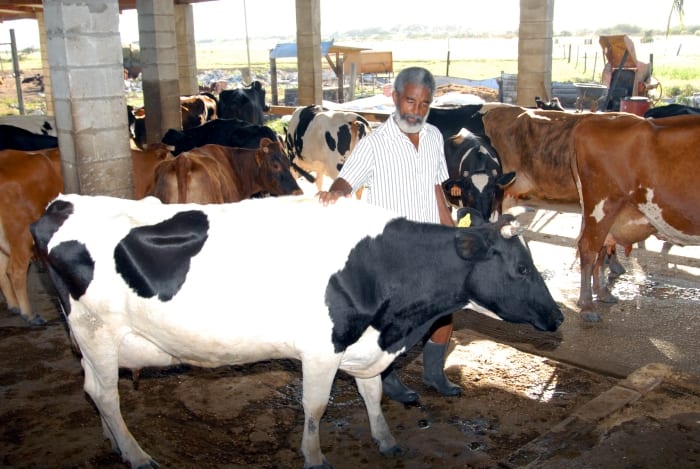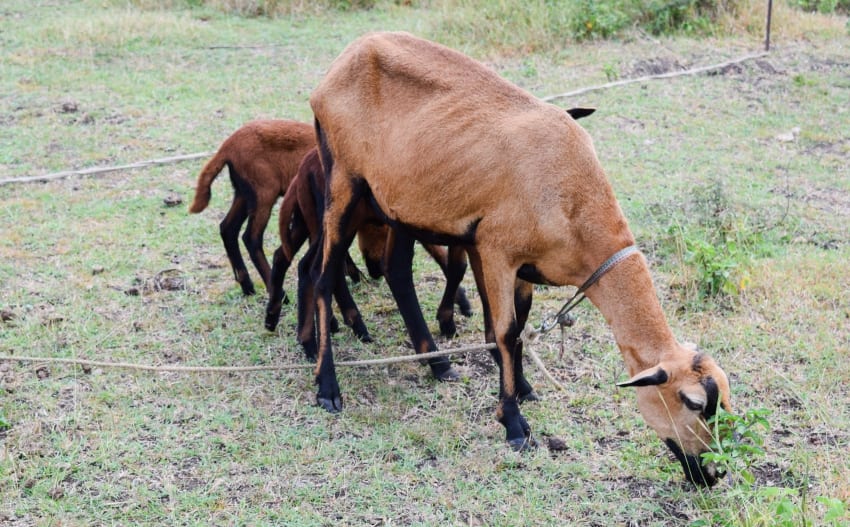
With Barbados expected to experience “very high temperatures” over the next few weeks, Senior Veterinary Officer and Head of the Veterinary Services, Dr. Mark Trotman, is urging farmers to take good care of their livestock.
Speaking to the Barbados Government Information Service (BGIS) today, Dr. Trotman said the plea comes against the backdrop that the Barbados Meteorological Services had indicated that extreme heat conditions were expected to continue “possibly into mid-October”, and from information reaching him that farmers are witnessing “some animals dying from the heat”.
Reminding them that heat tolerance can vary between and within species, he stressed the need to be vigilant and take precautions.
According to him, cattle are more prone to heat stress than sheep and goats; pigs and poultry are highly susceptible to heat stress and sunburn, while high producing dairy cows are more affected by extreme heat than lower producing cows. Additionally, young and old animals, dark-coloured ones, and those that are sick are at high risk for heat stress.
Pointing out that farmers could recognise the signs of heat stress in animals through their restlessness, Dr. Trotman noted that there may also be increased salivation, panting and stumbling.
n addition, there may be increased water intake, and the animals may have loss of appetite; be lethargic, or in some instances, collapse or have convulsions.
He added that in poultry the effects of the heat may be seen through laboured breathing and panting; a pale comb/wattles; the lifting of wings away from the body, lethargy, diarrhoea and seizures and/or convulsions.
The official acknowledged that there were several steps farmers could take to prevent an emergency. Among these is providing their animals with a plentiful supply of clean, cool water and a shady area.
Adding that they should ensure that water troughs and containers are large enough and can be easily accessed, he stressed they should also consider supplementing the diets of their livestock with electrolytes (especially the birds).

Troughs or containers, he said, should also be firmly fixed so that they do not overturn, and farmers should seek to increase the number of watering points and water flow.
In emphasising the importance of providing protection from the sun, Dr. Trotman suggested the use of shade cloth or timber to construct shelters, and stressed it was also better to use aluminium or galvanised steel for roofs, as these tend to reflect the radiative rays of the sun.
Livestock farmers are also encouraged to ensure good wind flow to help keep animals cool. While they are advised not to crowd the flocks, they are also being told that, if necessary, they should look to house the animals in smaller groups. Also they should try to feed and handle animals as late or as early in the day as possible, during the cooler hours.
Furthermore, farmers are being instructed to reduce stocking density to 85 per cent of capacity to ensure good air flow; provide large canopy trees as shade, and hose down cattle and pigs.
They are also being urged, where possible, to consider the idea of fine-mist sprayers and even wading pools for some animals.
Dr. Trotman said in the final analysis, farmers should undertake to daily monitor livestock, and over the coming weeks, do their best to make sure the animals are kept calm.
